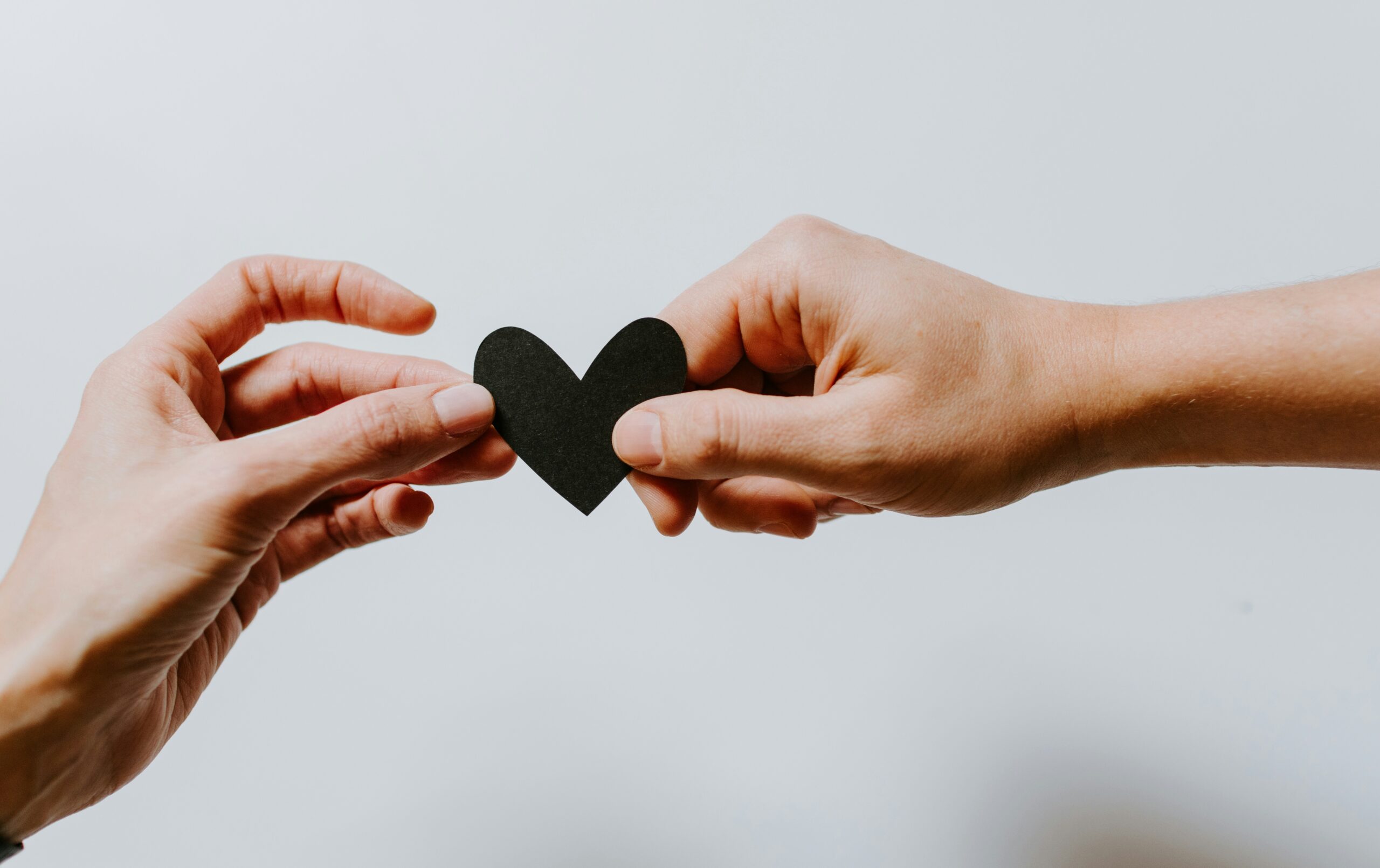A miscarriage is a loss of an unborn child during the first 20 weeks of pregnancy. Ten to 20% of women have experienced a miscarriage at some point. Like other forms of loss, experiencing a miscarriage almost always leads to grief.
What makes a miscarriage unique is that it is a type of disenfranchised grief, which refers to the grief you feel when your loss is not formally recognized by society. Furthermore, for many women, a miscarriage is also a traumatic event. This adds an additional level of emotional pain to an already very painful experience.
Honoring a loss like miscarriage can be especially challenging. People in your life may or may not know about your loss. Those who do know may not know what to say or inadvertently say things that are hurtful. Whether you share this loss with others or keep it private, finding a way to honor your miscarriage can help you on your healing journey. This could involve getting a miscarriage tattoo, writing a letter to your baby, or talking about them. There is no ‘right’ way to honor your miscarriage. You must do what feels right to you.
The emotional impact of a miscarriage
A miscarriage is a deeply emotional experience that can affect people in many different ways. Common reactions to a miscarriage include:
- Shock
- Denial
- Guilt
- Anger
- Depression
According to Dr. Lauren Richardson, a psychologist in Newport Beach, CA and the owner of Thrive Space Psychological Services, “A woman who experiences a miscarriage might feel a wide variety of emotions which could include sadness, anger, devastation, confusion, shame, and hopelessness.” She continues “there is no ‘right way’ to feel and each person has their own unique emotional experience following a miscarriage.”
Jessica Rudzinski, LPC-A, a perinatal counselor in Columbia, South Carolina shared “it’s essential to allow yourself the time and space to grieve in a way that feels meaningful. It doesn’t matter if you are three weeks along or twelve, the moment you find out you are pregnant, you have bonded.” She reminds us that it’s important to recognize your emotional reactions and avoid judging yourself for them.
Why honoring your baby can be helpful
Finding a way to honor your baby can be an important part of your healing journey after a miscarriage. As previously mentioned, miscarriage is a form of disenfranchised grief. Experiencing a loss that society struggles to recognize can keep many women and families silent. Finding a way to honor your baby in a way that feels right for you can help you acknowledge your baby’s life, even if society doesn’t formally recognize it.
We don’t ‘move on’ from loss. The notion that one day you will wake up and be back to yourself minimizes the deep pain and transformation that takes place after a miscarriage.
Experiencing the loss of a baby will change you forever. You will never stop feeling the pain. But through your grief journey, you can move forward. Finding ways to honor your baby can help you in this journey.
Ways to honor your baby after a miscarriage
“Honoring a miscarriage is a deeply personal and sensitive process and there is no singular way to cope with such a loss,” Rudzinski explained. When it comes to honoring a miscarriage, you should do what feels right. What works for one person, may not work for another. While there is no ‘right’ way to honor a miscarriage, here are some ways that have worked for parents:
Name your baby
Naming your baby can be a special way to honor their life. A name can give you something to call your baby and recognizes that they are a person. If you name your baby, you can choose to keep this name private or share it with family and friends.
If you already had a name for your baby picked out, you can choose this name or a different one. It’s okay to change your baby’s name if you want to save the original name for the future. You could even select a letter or symbol if you prefer. The choice is completely up to you.
Get a tattoo
Getting a tattoo can be another way to honor your baby’s memory. A miscarriage tattoo can be a way of keeping your baby close to you and serves as a constant reminder of their life.
There are many different types of tattoos that could honor your baby. For example, you may choose to get a tattoo of their name, significant dates, their zodiac sign, or an image that symbolizes your love for them. Whatever you choose, it’s most important that it feels meaningful to you.
Talk about your baby
For some families, talking about their baby can be a powerful way of keeping their memory alive. Talking about your baby can be a way of expressing yourself, seeking support, and acknowledging what they meant to you. Hearing your baby’s name spoken by another person can also feel very comforting.
When talking about your baby, it’s important to select supportive people to do so with. This could include family, friends, members of a support group, or your therapist.
It’s an unfortunate reality that not everyone will be good candidates for support. The topic of miscarriage can make some people feel very uncomfortable, and they may respond with inappropriate or dismissive remarks.
When it comes to individuals like this, you may need to take some time away. Dr. Richardson explains that it’s okay to be selective with whom you share your grief with.
Choose those people who are understanding, patient, and compassionate. If you don’t have that, consider speaking with a therapist or joining a miscarriage support group. There are many virtual options available through Postpartum Support International.
Honor your baby with a physical representation of them
Many families find comfort in honoring their baby with a physical representation of them. A physical representation can serve as a reminder of their life, as well as a source of comfort. If you have other children, you may even have them help you find a way to honor them. Children have their own grief journey, so if it feels appropriate, they may benefit from honoring their sibling as well.
Examples of ways to honor your baby in this way include:
- Planting a tree
- Purchasing a memorial plaque or statue
- Putting up a holiday ornament or stocking
- Wearing a piece of jewlery
- Puting up a windchime in their honor
Write your baby a letter
Another way to honor your baby is to write them a letter. “Writing a letter to your unborn baby can offer you a way to say all the things they were never able to hear you express, but they knew,” Rudskiniski explains. It can give you an opportunity to put your thoughts, feelings, hopes, dreams, and memories in writing for them.
If you choose to write a letter, you could approach it like a formal letter, journal entry, or poem. You could even make a video, piece of art, or music for them.
Once you have the letter or other piece of work completed, you could choose to share it with others or keep it for yourself. You could display it in your home, keep it in a scrapbook, or send it out into the ocean. The possibilities are endless. It’s most important to choose the path that feels most right to you.
When to seek further support
Most people who experience a loss such as a miscarriage heal through actions like honoring the deceased and reaching out to loved ones for support. The passage of time can also help you cope with the loss. The amount of time it takes to cope with a loss can vary considerably. There is no ‘right’ amount of time to grieve.
While most people do cope with loss over time, there are some cases where a parent who experienced a miscarriage may need professional support. Signs that you may be experiencing depression and need treatment include:
- Feeling sad nearly every day for several weeks
- Feeling easily irritated
- Being unable to find enjoyment in things
- Changes in eating patterns
- Sleeping more or less than usual
- Anxiety
- Lack of energy
- Having difficulty focusing
- Feelings of guilt or worthlnessness
- Suicidal thoughts or attempts
If you’re experiencing any of the symptoms above, it’s important to speak with a mental health professioanl or other healthcare provider. Grief can sometimes turn into chronic depression, which is treatable with therapy and/or medication. Seeking help sooner, rather than later, can help you cope with the loss and move forward in your healing journey.
Author
-

Dr. Emily Guarnotta is a licensed psychologist and perinatal mental health specialist (PMH-C). She has works with clients experiencing a range of maternal mental health concerns, including infertility, postpartum depression and anxiety, and miscarriage. She is also the co-founder of Phoenix Health, an online practice that specializes in therapy for maternal mental health conditions. When she's not working, you can find her enjoying time with her family, traveling, and staying active.
View all posts





